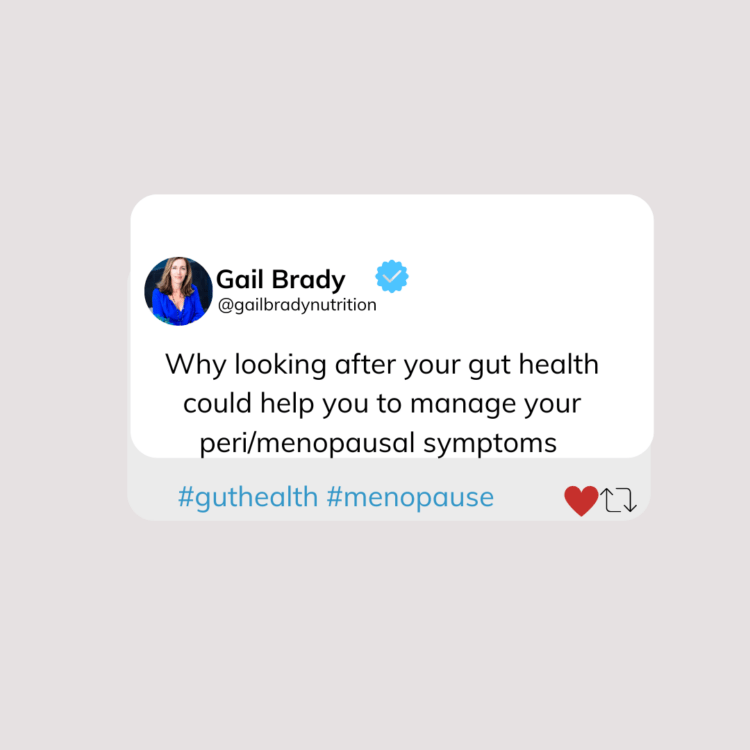Research has shown that women naturally lose some diversity in the beneficial bacteria in their guts during peri/menopause.
In fact, from around the age of 40, diversity will start to decline and this has been associated with changes in hormone levels.
Our gut bacteria help us to digest foods and produce essential nutrients.
The lining of the gut is also a barrier to the rest of your body, protecting your immune system and your general health and well-being.
Levels of digestive enzymes and stomach acid often decline too and this can lead to digestive issues such as bloating, brain fog, headaches, IBS, joint pain and autoimmune issues, as well as poor absorption of nutrients including iron and calcium.
We already know that there is a direct link between gut health and brain health, and that compromised gut health can influence your moods and brain function.
And now recent studies have also shown that the health of your gut can also affect your hormones and potentially your peri/menopausal symptoms too.
Perimenopause and gut health
One of the reasons the diversity of our gut bacteria is thought to change is the role oestrogen plays in gut health.
Oestrogen has been shown to influence the balance of beneficial bacteria in our digestive systems and vice versa, the balance of gut bacteria can also influence your levels of oestrogen.
Inflammation in the gut can also be detrimental to hormonal balance
Declining levels of oestrogens and changes in the diversity of your gut bacteria can affect your weight, your ability to effectively control your blood sugar (and insulin levels), your immune health and even your bone health.
Ineffective elimination of oestrogen can also lead to hormone imbalances and increased peri/menopausal symptoms.
This is a complex relationship and the mechanisms between hormone balance and gut health are not yet known.
Other risk factors
Gut health can also be compromised through a history of antibiotics and other medications including antacids and over-the-counter painkillers.
Stress, viruses, yeast, parasites, alcohol and our diets are just some of the other factors which can disrupt the balance of your beneficial bacteria.
Common symptoms of compromised gut health
- Skin issues – including acne, rosacea, eczema, psoriasis, rashes
- Anxiety and depression
- Weight gain
- Aching joints
- Headaches
- Fatigue
- Brain fog
- Acid reflux
- Constipation and diarrhoea
- Flatulence
- Bloating
What you can do
- Eat foods that feed your beneficial bacteria. These are called prebiotics. Some examples are: asparagus, green bananas, leeks, onions, flaxseeds and chia seeds
- Include fermented foods in your diet daily. These include: sauerkraut, kimchi, miso, kefir and kombucha. All are now readily available in supermarkets. Start with small amounts and monitor your symptoms in case of intolerance.
- Make sure you have plenty of fibre in your diet. Include a diverse range of colourful veggies including dark green leafy veg. Professor Tim Spector author of Spoon Fed, recommends eating 20-30 different plant foods a week. Flaxseed can also be beneficial for getting fibre in your diet too
- Consider taking a multi-strain broad-spectrum probiotic, especially after antibiotics
- Other supplements may also be appropriate, however, I would always recommend working with a registered nutritionist to make sure recommendations are relevant to you and your specific health issues.
Stool testing may also be appropriate for clients with ongoing digestive issues to help to get to the root cause of these issues.
Want to know what to eat during perimenopause? Get my meal plan and food guide for women over forty here




